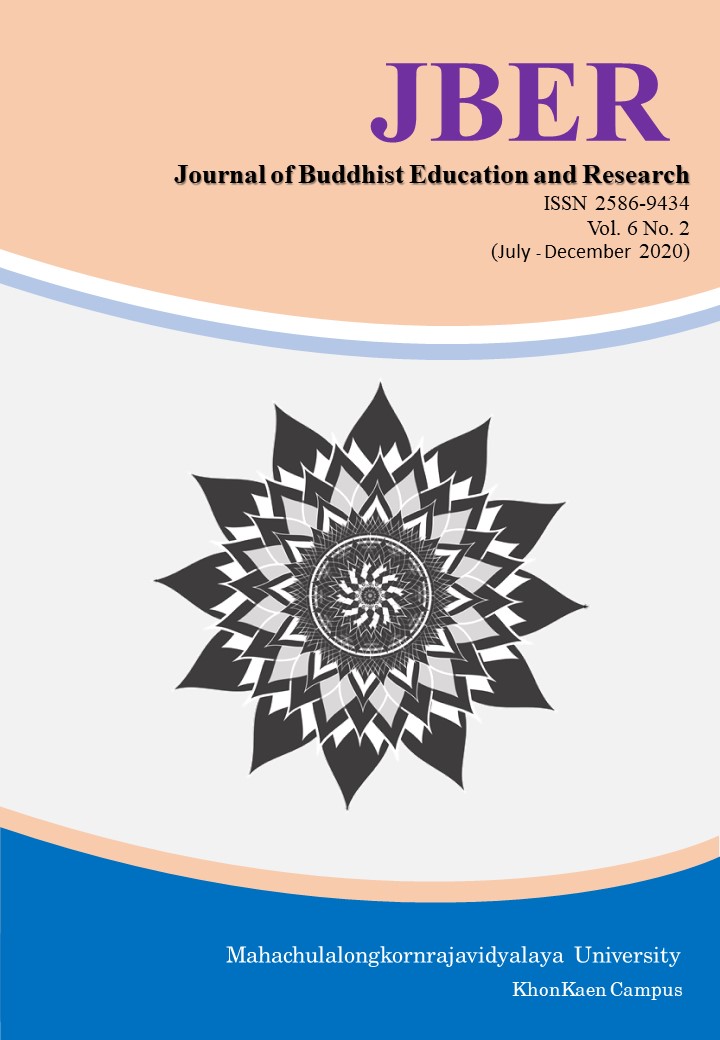Borwon Power and Buddhist Principles Practice in Learning Center for Buddhist Tourism Management
Keywords:
Borwon Power, Buddhist Tourism, Buddhist Dhamma.Abstract
The tourist learning center was established throughout the country many years ago to concentrate on variety of locations and cultural as well as religious places which process factors that can attract and support the tourism. The most important power to enhance management planning and coordinating the activities and various project into action in order to promote the tourism to become the sharing continuing the tradition, culture and knowledge transferring, network expansion recognition and outreach by public relations information accurately, The management process by three power called BORWON (BAN, WAT and SCHOOL) by sticking to Buddhist Dhamma as the key pillars to guarantee the success of the management of the learning center for Buddhist tourist management.
References
กรมการศาสนา กระทรวงวัฒนธรรม. (2561). กระบวนการดำเนินงานชุมชนคุณธรรมขับเคลื่อนด้วยพลังบวรประจำปี 2561. กรุงเทพฯ: กระทรวงวัฒนธรรม.
กระทรวงวัฒนธรรม. (2562). แนวทางการสร้างความเข้มแข็งของ “บวร” เพื่อความมั่นคง มั่งคั่ง ยั่งยืน ของชุมชน คุณธรรมน้อมนำหลักปรัชญาเศรษฐกิจพอเพียง. กรุงเทพฯ: กระทรวงวัฒนธรรม,
การท่องเที่ยวแห่งประเทศไทย. (2558). ศูนย์การเรียนรู้ด้านการท่องเที่ยว (Tourism Learning Center) : TAT Review 2558-2560. สืบค้นเมื่อ 19 กันยายน 2563. จาก http://www.etatjournal.com /web/ menu-read-tat/menu-2015/menu-42015/681-42015-tourism-learning-center.
ฐิรชญา มณีเนตร. (2551). การท่องเที่ยวอย่างยั่งยืน. เอกสารประกอบการสอนวิชาการท่องเที่ยวอย่างยั่งยืน. มหาวิทยาลัยขอนแก่น.
นิคม จารุมณี. (2536). การท่องเที่ยวและการจัดการอุตสาหกรรมการท่องเที่ยว. (พิมพ์ครั้งที่ 2). กรุงเทพฯ: โอเดียนสโตร์.
พระธรรมปิฎก (ป.อ. ปยุตโต). (2543). การพัฒนาที่ยั่งยืน. กรุงเทพฯ: โรงพิมพ์สหธรรมิก.
พระพรหมคุณาภรณ์ (ป.อ. ปยุตโต). (2551). พจนานุกรมพุทธศาสตร์ ฉบับประมวลศัพท์. (พิมพ์ครั้งที่ 12). กรุงเทพฯ: มหาวิทยาลัยมหาจุฬาลงกรณราชวิทยาลัย.
พระวิสุทธิ์ ฐิตวิสุทฺโธ และคณะ, (2549). การพัฒนาศักยภาพการบริหารจัดการท่องเที่ยวเพื่อการส่งเสริมสร้างจิตสำนึกสาธารณในจังหวัดเชียงใหม่. รายงานการวิจัย. มหาวิทยาลัยมหาจุฬาลงกรณราชวิทยาลัย.
ภัทร์สุภา ลีลานภาพรรณ์. (2551). การท่องเที่ยวเชิงพุทธ : ศึกษาเฉพาะกรณีแหล่งวัฒนธรรมในกรุงเทพมหานคร. นครปฐม : มหาวิทยาลัยมหามกุฏราชวิทยาลัย.
มหาวิทยาลัยมหาจุฬาลงกรณราชวิทยาลัย. (2539). พระไตรปิฎกภาษาไทย ฉบับมหาจุฬาลงกรณราชวิทยาลัย. กรุงเทพฯ: โรงพิมพ์มหาจุฬาลงกรณราชวิทยาลัย.
วินิจ วีรยางกูร. (2532). การจัดการอุตสาหกรรมการท่องเที่ยว. ม.ป.ท.
เสฐียรพงษ์ วรรณปก. (2536). ข้อมูลเพิ่มเติมจากวาระสุดท้ายของพระพุทธเจ้า. กรุงเทพฯ: สำนักพิมพ์ธรรมสภา.





